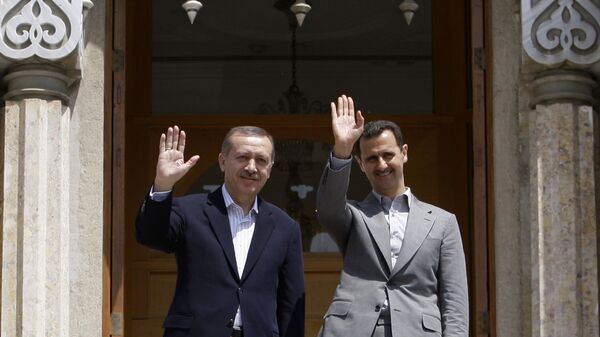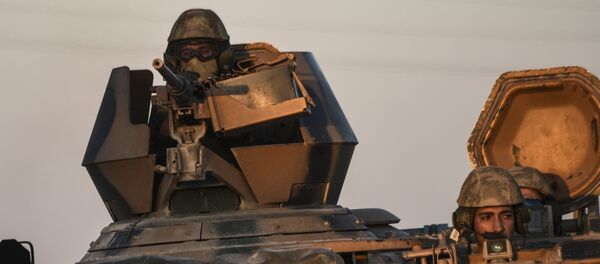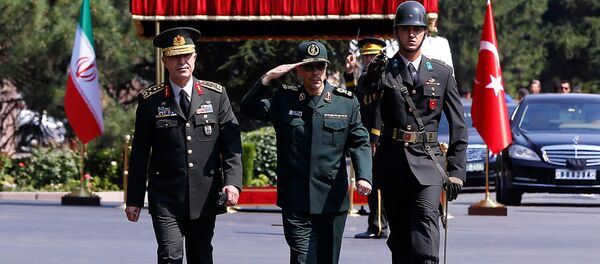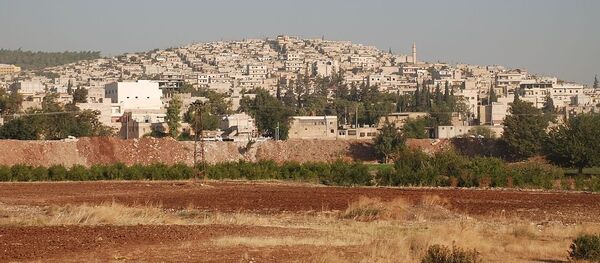"Currently, perhaps the most significant steps have been made in the country's [Turkey’s] foreign policy in terms of departing from the traditional 16-year political strategy of the ruling the Justice and Development Party (AKP). The AKP leadership constantly said that ‘without the knowledge of Turkey, even a bird should not fly in the region’. Proceeding from such rhetoric, Ankara has been building its own line of conduct toward Syria and Iraq for a long period of time. Steps were taken to create a situation in the region that was in the interests of Ankara. However, now we are witnessing that Turkey is gradually giving up this strategy, the Turkish authorities are making certain concessions," Zeynep Gürcanlı told Sputnik Turkey.
The political observer said that "Turkey has major difficulties" regarding the situation in the northern Syrian province of Idlib and in nearby Afrin, controlled by Kurdish forces.
"The AKP government was originally aiming to replace the current leadership in Syria; the [Syrian President Bashar] Assad government was declared an enemy. However, in the current situation, the Turkish authorities began searching for ways to reconcile with Assad. I believe that the visits of the heads of the General Staff of Russia and Iran are connected with the discussion of the situation in Idlib, Afrin and the issue of Turkey's recognition of the Syrian authorities," Gürcanlı said.
"Therefore, Idlib must be mopped up anyway, but it must be done so that the militants and their families who were about to flee from Idlib cannot do this, cannot not cross the border into Turkey. This issue is currently on the agenda of the major players in the region. The solution to this problem lies in the transfer of the region under the control of the Assad government."
"But Turkey puts forward one condition, namely, the withdrawal of Kurdish self-defense units YPG from Afrin they currently control. It seems to me that the main issue for discussion, which the parties are trying to solve through diplomacy, is how the transfer Afrin and Idlib under the control of the Syrian government forces. A very complicated search for the least painful formula for Turkey's interests in solving this issue is being sought for," she concluded.
Lately, Ankara has been engaged in negotiations with diplomats and foreign military representativeson the situation in Syria. In particular, the chief of the Iranian General Staff visited Turkey, which was followed by President Recep Tayyip Erdogan’s visit to Jordan. Moreover, US Defense Secretary James Mattis arrived in Ankara. Moreover, the visit of the head of the Russian General Staff Valery Gerasimov is expected.
Toğrul İsmayıl, the expert from the Economic and Technological University of the Union of Chambers of Commerce and Commodity Exchanges of Turkey, commented on the possible consequences of this meeting for Russian-Turkish relations in an interview with Sputnik. He stressed that "the interaction of Turkey and Russia should develop independently of attempts at influence from the US and the EU."
"Russia and Turkey should develop bilateral cooperation in the region, as this is the key to strengthening their positions. They need to continue to increase their cooperation based on their own interests, for the sake of ensuring peace in the region, regardless of attempts to exert influence from the US and the EU," İsmayıl said.
In his view, by resorting to various methods, including by supporting the Syrian Kurdish Democratic Union Party, the US is conducting a self-centered policy in the Middle East that harms the countries in the region and US allies.
"In pursuing this policy, the US acts very selfishly toward its allies, considering the situation in the region exclusively through the prism of its own interests. In pursuing this policy, the US aims to maintain instability in the region under its control. Allied countries should strive to protect each other's interests, but the US is doing the exact opposite. That is why the relationship is in such a depressing state," the Turkish expert concluded.
Ankara considers the YPG to be affiliated with the Kurdistan Worker’s Party (PKK), which is listed as a terrorist group in Turkey, the United States and the European Union. However, the Democratic Union Part (PYD) and the YPG, as well as the Kurdish-led Syrian Democratic Forces (SDF) have been receiving support from the United States in fighting the Daesh terrorist group.





